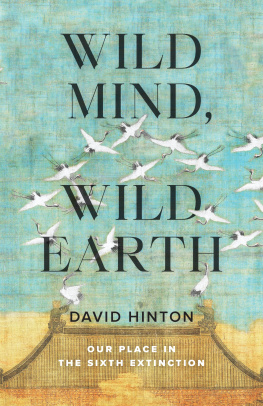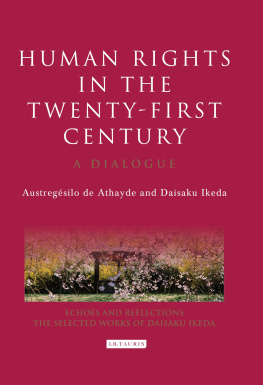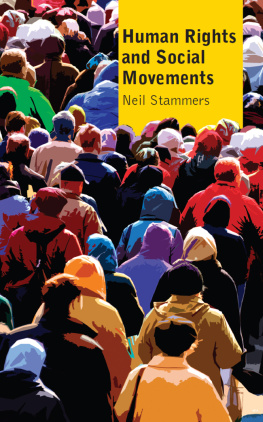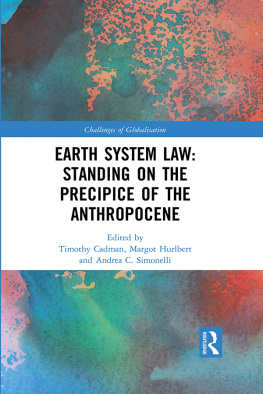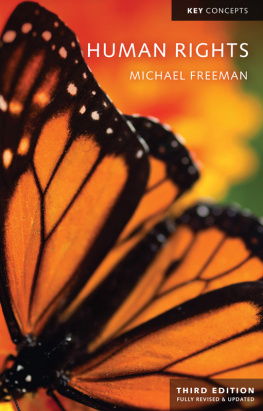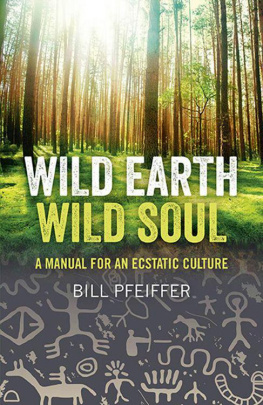WILD LAW
Even in an age that feels itself to be enlightened and humane, and condemns cruelty to animals, and claims to take the environment seriously, the idea of Wild Law still seems, to many, to be bizarre. How can wild creatures, or landscapes, be granted the same kind of respect the same rights in law, as a human being? Yet, as Cormac Cullinan argues so powerfully, the morality of this is clear, and the logic of the case seems impeccable. Indeed we should be asking, can we claim to be fully civilized in the absence of such laws?
Colin Tudge, author of The Secret Life of Trees, Feeding People is Easy and Consider the Birds: How They Live and Why They Matter
This book of Cormac Cullinan explains with great clarity how we can change our entire approach to governance so that we can continue life on a liveable planet. In its basic outlines this book is one of the finest contributions to the entire field of jurisprudence in recent times.
Thomas Berry, author of The Dream of the Earth, The Universe Story and The Great Work
Wild Law is a stimulating, eminently readable response to our governance crisis. The survival of our species and health of the Earth family depends on our ability to transform governance systems so that humans become part of the ecological matrix of biological and cultural diversity. This book is a milestone on that path.
Dr Vandana Shiva, President of the Research Foundation for Science, Technology and Ecology, and author of Staying Alive and Water Wars
The arrogance of the civilised world has blinded it to the wisdom of the indigenous people for too long. Cormac Cullinans call for the indigenous voices and the wisdom of thousands of years of human experience to be heard in the heart of our governance systems is both timely and powerful. This provocative and groundbreaking book is an important milestone in the process of finding a viable ecological role for contemporary human societies.
Martin von Hildebrand, co-ordinator of COAMA, programme for indigenous people in Colombia, which received the Right Livelihood Award in 1999
We desperately need some new thinking today about systems of global governance. Were stuck with the same obsolete, ignore-the-earth institutions that were brought into being after the 2nd World War, and theyre now failing us ever more catastrophically. Wild Law shows just how radical we now need to be in creating new institutions that are genuinely fit for purpose in the 21st Century.
Jonathon Porritt, Director of Forum for the Future
We urgently need to rethink our legal and political systems if we are to stop environmental destruction. The radical ideas in Wild Law will give both lawyers and grass-roots activists the tools they need to start the process.
Michael Meacher, former UK Minister for the Environment
Wild law is to law what quantum physics is to physics.
Alessandro Pelizzon, co-founder of Earth Laws, the Australian network on Wild Law and Earth Jurisprudence
WILD LAW
A Manifesto for Earth Justice
SECOND EDITION
CORMAC CULLINAN
with a foreword by Thomas Berry
This second edition published in 2011
by Green Books, Dartington Space, Dartington Space,
Totnes, Devon TQ9 6EN, UK
www.greenbooks.co.uk
in association with
EnAct International, Cape Town
www.enact-international.com
First edition published in August 2002 by Siber Ink,
PO Box 44754, Claremont 7735, South Africa
First UK edition published in November 2003 by Green Books in association with the Gaia Foundation
Cormac Cullinan 20022011
The right of Cormac Cullinan to be identified as author of this work has been asserted in accordance with sections 77 and 78 of the Copyright Designs and Patents Act 1988. No part of this book may be reproduced or transmitted in any form or by any means, electronic or mechanical, including photocopying, recording or by any information storage and retrieval system, without permission in writing from the Publisher.
Quotes on pages 23, 78, 89, 129, 131, 138, 142, 143, 144, 145 and 175 are sourced from Simply Living, edited by Shirley Ann Jones, ISBN 1 57731 054 3; published by New World Library, Novato, California (www.nwlib.com).
Design by Rick Lawrence, Samskara Design
Cover image by Martos Hoffman
www.martoshoffmanimages.com
Print edition ISBN 978 1 900322 90 4
PDF edition ISBN 978 0 85784 029 5
ePub edition ISBN 978 0 85784 030 1
DEDICATION
To my parents Chatlaine and Brendan, and to the hills, forests and creatures of Townbush Valley, all of whom instilled in me a love of Earth
to my sons Cian and Benjamin: may they know the joy of being within the Earth Community
and in memory of Thomas Berry, wise mentor and eloquent elder spokesman for Earth and all her children
Preface to the second edition
This book presents a vision of how we could change the systems that structure and order the industrialised societies that dominate the contemporary world. We need to do so in order to turn away from the catastrophically destructive path that we are currently pursuing and to find a viable role for our species in the Earth community one that will increase rather than diminish the beauty, health and diversity of Earth. Making this transition before it is too late is difficult, but it is possible. Since human beings have no future on Earth unless we are able to do so, being deterred by the difficulties is tantamount to acquiescing to extinction.
As the gravity and extent of human-induced damage to the planet becomes increasingly apparent, more and more people are realising that we cannot solve the environmental challenges of the 21st century by merely tweaking existing systems of governance. This revised second edition (which incorporates a new postscript and the Universal Declaration of the Rights of Mother Earth proclaimed on 22 April 2010) has been published because over the last few years in many parts of the world there has been a rapid upsurge of interest in living and ordering society in a way that is consistent with nature instead of trying to dominate nature. To many people the idea that we should aim to live by the rules of the community or Earth system within which we came into being still seems radical rather than self-evident. I believe that the only realistic prospect of securing the kind of future to which most of us aspire is to effect fundamental changes to how we regulate our societies, inspired by an Earth-centric perspective. Climate change and other environmental crises are a direct result of our failure to align human systems of governance with the fundamental rules of the Earth system of which we are a part. Humans will continue to violate ecological limits and upset fundamental ecological balances until we establish ways of regulating human conduct that ensure that we comply with the fundamental rules of the Earth community.
The first edition of Wild Law was published in South Africa, immediately before the World Summit on Sustainable Development (WSSD) convened in September 2002 in Johannesburg. The WSSD did not initiate any new strategies or approaches capable of halting and reversing the degradation of Earth by humans, nor has the international community of states adopted any since 2002. The inadequacies of the international governance system in the face of the most significant challenges of the 21st century were clearly visible in the failure of the 15th meeting of the conference of the parties to the United Nations Framework Convention on Climate Change (UNFCCC) held in Copenhagen in December 2009 to produce a consensus on how the global community should respond to climate change. Indeed the future of the UNFCCC process itself is now in jeopardy, and a new international agreement on climate change may not be in place before the Kyoto Protocol expires in 2012.
Next page

